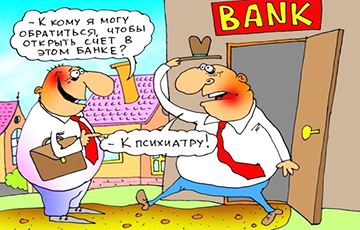Public Debt May Cause Sudden Ruble Devaluation
45- 7.12.2017, 12:30
- 154,704

It will happen in the near future.
The public debt of Belarus is growing. What can it lead to in the near future?
The academic director of the BEROC Center for Economic Research and the visiting professor of the Kyiv School of Economics, Candidate of Economic Sciences of the University of Madrid Katerina Bornukova answers questions of onliner.by:
- The problem of public debt is alarming not only for economists. This indicator sooner or later reflects on each of us, so the question "how things are with the public debt?" arouses great interest of every Belarusian.
And there are grounds to worry about. This year it has increased, as it happened the year before. Generally speaking, the picture turns out to be bleak. In early 2014, the public debt was 22% in relation to the country's GDP, to date, this figure has risen to 39.8%.
I will mention that this year its percentage against GDP has risen insignificantly (by 0.4%), but in absolute terms it increased from 37 to almost 42 billion rubles. The growth is related to new borrowings made by our government.
Some of them were spent on repaying previous loans, other part, in fact, replenished the state gold and currency reserve.
What is the reason for this constant increase in debt?
In most countries it accumulates when there is a deficit of the public budget, while in Belarus the budget almost always meets figures. It's all about extrabudgetary operations. For example, when the state finances state-owned enterprises or pays out their debts.
According to the First Deputy Minister of Finance Maksim Yermalovich, during the crisis of 2015-2016, almost $1.8 billion was spent on refinancing of debts of state-owned enterprises. It makes its external and internal debts increase then.
As a result, we observe two parallel, conflicting processes. First: tight monetary policy of the National Bank. Second: continued prospectless crediting of some state-owned enterprises and economically unjustified increase of salaries to state officials.
It's a sad thing to admit, but populist measures are nullifying any good trends, and this has had a bad effect on the country's trade balance, which we have been struggling to fix over the past few years. The fact is that imports are now growing faster than exports, which means that in the future, if nothing is done, we will have to continue accumulating foreign debt to cover this gap.
The clouds are already piling up. Most likely, next year the public debt will grow again, we will have to look for new sources of borrowing.
Moreover, one must remember that today an NPP is under construction, and it is made on credit we will begin to pay out as soon as the NPP starts operating in about 2020. Here are problems as well: if earlier we expected that the NPP would generate an inflow of currency which could be spent on debt repayment, now it becomes clear that it will be difficult to export electricity. Neither Poland, nor Lithuania (our two most likely partners) do not want to buy electricity. Therefore, when the NPP starts operating, there is a possibility of another debt, which is problematic to pay out.
As a result, there is every reason to believe that closer to 2020, we will once again face hard times, and very much depends on how we are prepared for them.
Amid a pessimistic forecast, debts of enterprises and the total debt of the state will continue to grow. There will be no reforms in the public sector that could improve its competitiveness. As a result, there may be the situation when it is very difficult to enhance the external debt increase: creditors being aware of finiteness of our possibilities will pose a logical question: how will we settle with borrowed money?
Now we spend about 2% of GDP to pay out interest on such public debts. So far, default risks are not very obvious, but certain economic problems are more visible now; we should admit that the only way we could get rid of them earlier was a sharp devaluation.
Accordingly, if no action is taken, a similar scenario can be assumed.









